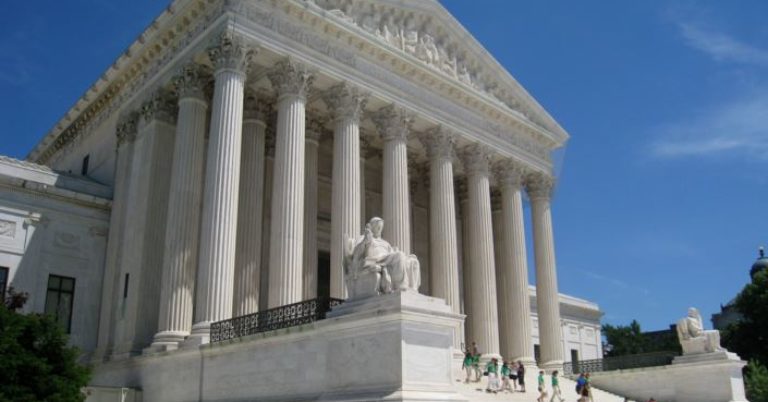
Setting the Record Straight on Right-to-Work and Janus v. AFSCME
Last week, the United States Supreme Court agreed to take up the case of Mark Janus, a public employee in Illinois who is suing the American Federation of State, County, and Municipal Employees (AFSCME) union over the requirement that he pay the union or risk being fired.
Janus’ case is identical to the one brought by California teacher Rebecca Friedrichs in 2013 that reached the Supreme Court last year, but resulted in a 4-4 tie following the death of Justice Antonin Scalia. With the confirmation of President Trump’s nominee Neil Gorsuch to the bench to replace Scalia, the Janus case could result in right-to-work protection for all public employees nationwide.
Right-to-work laws simply state no worker can be fired for refusing to join or pay a union. 28 states have passed such laws, including six in the past six years. In non-right-to-work states, workers can opt out of direct union political spending (on candidates and political parties), but are still forced to pay the union for representation as a condition of employment.
The Supreme Court has previously upheld that no American can be forced to subsidize political speech that he or she does not support. However, the Court also previously ruled that government can force workers to pay “agency fee” union dues for the cost of collective bargaining – regardless of whether or not employees actually want that union representation.
The crux of the Janus case is that in government, union collective bargaining itself is inherently political, and so workers should not be required to pay agency fees to the union. Janus argues that when the union is bargaining on policies like pension benefits, wages, class sizes, and more, it is engaging in political speech because these issues directly impact public policy. (For example, public employee salaries are funded by taxpayers, so increasing them increases government spending).
Moreover, unions also take dues meant for collective bargaining representation and send them to outside organizations engaged in political or policy advocacy, such as the Center for American Progress and Planned Parenthood.
Reasonable people can disagree on public policy issues, but no one should be forced to fund speech they may or may not agree with, and that is clearly currently the case considering that unions sent nearly $765 million in workers’ dues to left-wing groups over the last four years but 43 percent of union households voted Republican for president in 2016.
But in some twenty states, if a public employee does not wish to increase taxpayer costs or otherwise objects to something the union is spending dues on, he or is she still forced to pay for it, therefore being compelled to subsidize political speech against their will – despite the Court protection against it.
Union leaders understand that the longstanding coercive status quo is at risk of being replaced by true individual freedom, and so they are raising several objections, all aimed at convincing the Court and the public to let them to continue to force workers to pay dues against their will.
Their primary complaint is that allowing workers to opt out of all union dues allows them to become “free riders,” benefitting from the union without paying to support it. But this is a misleading argument. Unions have “free riders” in right-to-work states because they choose to negotiate as “exclusive bargaining representatives,” meaning they represent all workers regardless of union affiliation. “Free riders” are not actually free riders, but forced riders beholden to a union contract against their will.
The Supreme Court has twice upheld the right of unions to negotiate “members-only” contracts for dues-paying workers only (Consolidated Edison Co v. NLRB in 1938 and Retail Clerks v. Dry Lion Goods in 1962) and many unions do so willingly today.
A secondary objection is that forced dues are necessary for “labor peace” – meaning that unions should be allowed to charge workers against their will or else the union is more likely to go on strike and threaten government services.
This logic is absurd on its face, and it is also factually inaccurate. US Bureau of Labor Statistics data from 1993 to 2014 show that public employees were 26 times more likely to go on strike in states that did not have right-to-work protections.
The simple truth is that forced union dues allow labor bosses to fund their exorbitant salaries and their preferred political agendas, but they strip millions of workers of their First Amendment rights.
Janus v. AFSCME is a chance for the Supreme Court to right this injustice for public employees across the country, and the Justices should not let the opportunity slip.
Akash Chougule is the Director of Policy at Americans for Prosperity.


